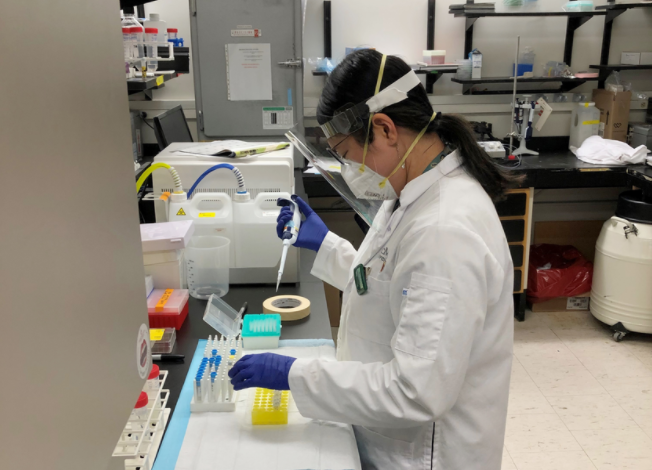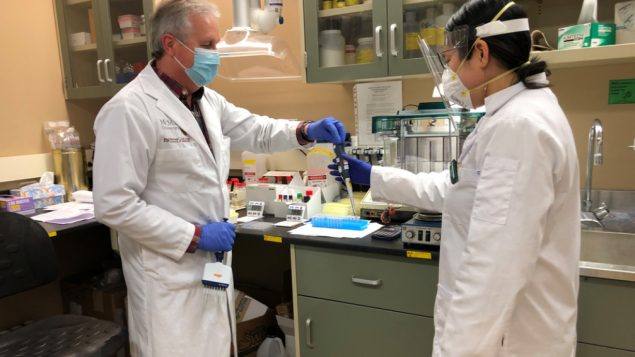A laboratory which has pioneered work on blood clots caused by medication is now set to diagnose clots that may occur in people after they received the AstraZeneca vaccine. Canadian health authorities say an extremely rare blood clot syndrome may be linked to the vaccine but the benefits of getting the shot far outweigh any risk.
So far, scientists at the McMaster Platelet Immunology Laboratory have tested 10 blood samples from people suspected of having blood clotting issues after getting the AstraZeneca vaccine. They can receive blood samples from across Canada and run tests to see if the patients’ blood has certain antibodies known to cause clotting. The results are then sent to the doctors treating the patients to help them determine the best treatment. Out of the ten tests done so far, only one turned out to be a positive for the antibodies that cause clotting. The patient was treated and is now recovering well.
Scientists work furiously to determine links
This did not determine that the clotting was caused by the vaccine. Scientists the world over are trying to find out if the vaccine triggers production of these antibodies which cause multiple small clots to form in the blood. It has also been found that in severe cases of COVID-19, patients may develop abnormal blood clots. Research is moving at a rapid pace to try to discover more about the role of antibodies and blood clots in relation to vaccines and severe cases of COVID-19.

Scientists at the McMaster lab are now leading international research to try to figure out how antibodies cause clots. (McMaster University)
Health Canada still authorizing AstraZeneca vaccine
Canadian experts continue to closely monitor safety data from all the vaccines and Health Canada says there is no evidence to show that some people may be at greater risk for complications of the AstraZeneca vaccine. So, it authorizes the shot for all adults and the National Advisory Committee on Immunization is reviewing the latest information to decide whether to lift its recommendation that the AstraZeneca vaccine not be used on people under the age of 55. This would greatly enhance the rollout of vaccines in Canada as the country grapples with an increase in infection rates and intensive care units rapidly filling. It will also inform decisions on the use of the Johnson & Johnson vaccine which too may have links to blood clots. That vaccine is not yet available in Canada but doses should arrive later in April 2021. U.S. authorities have “paused” its use pending further study. They have not authorized use of the AstraZeneca vaccine.
Decades of research help determine the role of antibodies
Building on research over 40 years, scientists at the McMaster lab were the first to discover a blood clot condition that sometimes occurs in patients who are given heparin, an anticoagulant medication. They are now leading international research to try to figure out how antibodies cause clots. The antibodies are said to form immune complexes that activate platelets. These are the cells that lead to blood clot formation.
“By discovering the mechanism, we can inform doctors on the use of blood-thinners, known as anticoagulants, that can stop the clotting in this rare vaccine side-effect and some COVID-19 patients,” said Ishac Nazy, associate professor of medicine at McMaster and director of the McMaster Platelet Immunology Laboratory.







For reasons beyond our control, and for an undetermined period of time, our comment section is now closed. However, our social networks remain open to your contributions.